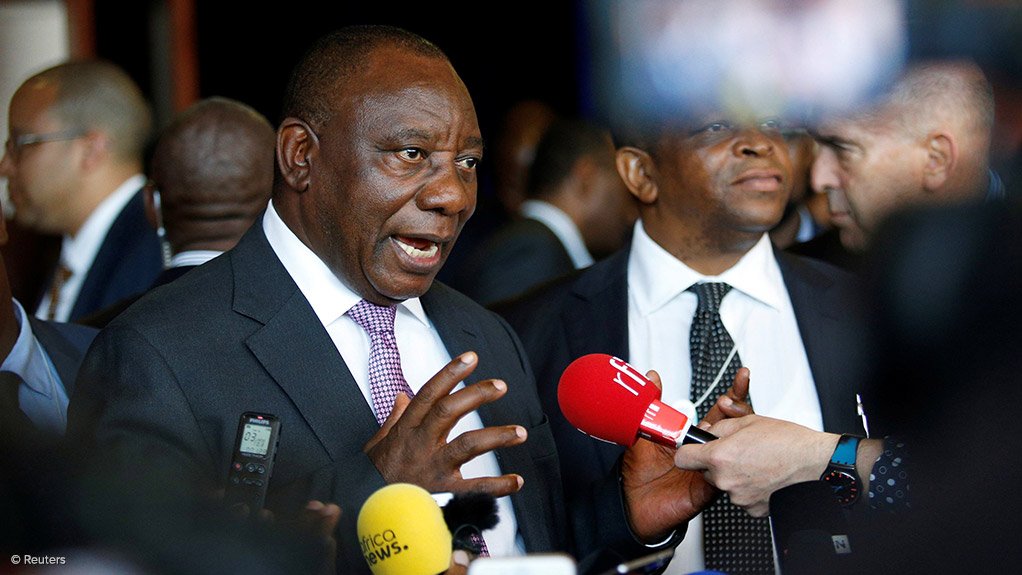It is necessary to give real content and meaning to the imperative of radical economic transformation to achieve inclusive growth, Deputy President Cyril Ramaphosa said on Sunday.
Delivering the Moses Kotane memorial lecture in Rustenburg, he said it was the transformation that should be radical, “not the words we use, not the loudness with which we shout them”.
There was widespread acknowledgement, including from bodies such as the World Bank and International Monetary Fund (IMF), that the problems of the South African economy were essentially structural, he said.
“It is these structural issues that are responsible for the extraordinarily high levels of unemployment and racialised inequality and poverty. This means that radical transformation must be about addressing these deeply embedded structural issues. Although we must approach this task with urgency and determination we need to understand that there are no quick or easy fixes.”
These problems included extremely high levels of monopoly concentration in the economy. This opened the door to collusion, anti-competitive behaviour, poor policy choices, and the stifling of small and medium-size enterprises. Ownership and management of major private corporations in South Africa remained racially skewed, he said.
“But if we simply produce greater racial representivity without changing the structural problems of excessive monopoly concentration, we will… just replace one elite with another.
“We must use broad-based economic development, state preferential procurement, the black industrialists programme, and many other initiatives to actively de-concentrate the commanding heights of our economy, to ensure greater domestic investment, and above all to create work and productive entrepreneurship,” Ramaphosa said.
Turning to land reform, he said if South Africa was to learn anything from some other countries then it was necessary to realise that land reform needed to achieve an effective balance between food security and the imperative of social justice.
“If we are to learn anything from our own land reform and land restitution programmes then it is that formal ownership is only a part of what is required.
“Land reform without adequate numbers of extension officers; without suitable irrigation, fencing, and other relevant infrastructure; without assistance in terms of inputs and marketing, is liable to end in disappointment and failure,” Ramaphosa said.
EMAIL THIS ARTICLE SAVE THIS ARTICLE
To subscribe email subscriptions@creamermedia.co.za or click here
To advertise email advertising@creamermedia.co.za or click here











